
Flags
Gillian Pistell writes on the loaded symbol of the American flag in the work of postwar and contemporary artists.
Gagosian is pleased to present Ed Ruscha Books & Co., an exhibition of artists’ books by and after Ed Ruscha. The exhibition is organized by Gagosian director Bob Monk. The exhibition will be presented in conjunction with Ed Ruscha Prints and Photographs.
In the 1960s, Ruscha was credited with reinventing the artist’s book, producing and self-publishing a series of slim volumes of photography and text. By turning away from the craftsmanship and luxury status that typified the livre d’artiste in favor of the artistic idea or concept, expressed simply and in editions that were unsigned and inexpensively printed, Ruscha opened the genre to the possibilities of mass-production and distribution. Ed Ruscha Books & Co. presents Ruscha’s iconic books together with those of more than one hundred artists from all over the world—from Russia to Japan to the Netherlands—who have responded directly and diversely to his lead. Many books are installed so that viewers can browse their pages. After presentations in New York, Munich, and Paris (2013–15), the exhibition run concludes in Ruscha’s home city of Los Angeles.
Inspired by the unassuming books that he found in street stalls during a trip to Europe, Ruscha published his first artist’s book, Twentysix Gasoline Stations, in 1962 under his own imprint, National Excelsior Press. Priced at $3.50, it is exactly what its title suggests: twenty-six photographs of gas stations with captions indicating brand and location. Initially, the book was received with indifference, and it was even rejected by the Library of Congress for its “unorthodox form and supposed lack of information.” However, over time it acquired cult status, and by the 1980s it was hailed as one of the first truly modern artist’s books. Ruscha followed this up with a succession of similarly self-evident and deadpan photographic books chronicling aspects of Los Angeles or his round-trip drives between Los Angeles and Oklahoma, including Some Los Angeles Apartments (1965), Nine Swimming Pools and a Broken Glass (1968), and Real Estate Opportunities (1970). Their use of photography as a form of map-making or topographical study signals a conceptual, rather than documentary, thrust.
This year marks the fiftieth anniversary of one of Ruscha’s most iconic artist’s books, the 25-foot-long, accordion-folded Every Building on the Sunset Strip (1966). The past half century has seen the importance and meaning of this book expand and evolve, pulled into new light by changing historical contexts, yet always retaining an enigmatic influence over new generations of artists. Ruscha’s artist’s books have been deeply influential on his peers and followers—from Bruce Nauman’s Burning Small Fires (1968), in which Nauman burned a copy of Ruscha’s Various Small Fires and Milk (1964) and photographed the process, to Julie Cook’s Some Las Vegas Strip Clubs (2008), which turns the lights up on some nocturnal haunts.

Gillian Pistell writes on the loaded symbol of the American flag in the work of postwar and contemporary artists.
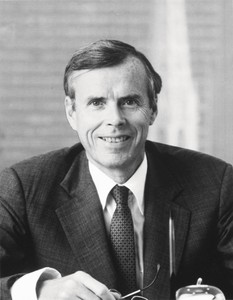
Jacoba Urist profiles the legendary collector.
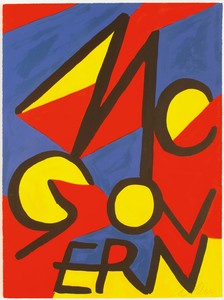
Against the backdrop of the 2020 US presidential election, historian Hal Wert takes us through the artistic and political evolution of American campaign posters, from their origin in 1844 to the present. In an interview with Quarterly editor Gillian Jakab, Wert highlights an array of landmark posters and the artists who made them.
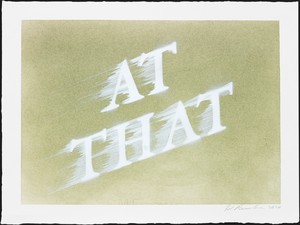
Lisa Turvey examines the range of effects conveyed by the blurred phrases in recent drawings by the artist, detailing the ways these words in motion evoke the experience of the current moment.
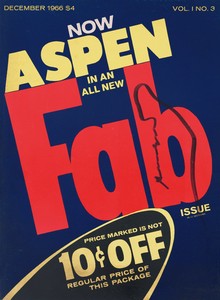
Gwen Allen recounts her discovery of cutting-edge artists’ magazines from the 1960s and 1970s and explores the roots and implications of these singular publications.
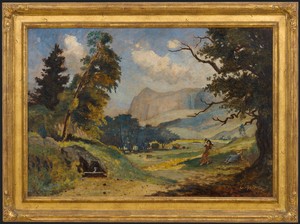
Ed Ruscha tells Viet-Nu Nguyen and Leta Grzan how he first encountered Louis Michel Eilshemius’s paintings, which of the artist’s aesthetic innovations captured his imagination, and how his own work relates to and differs from that of this “Neglected Marvel.”
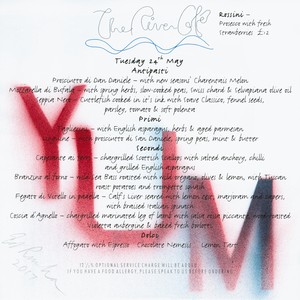
London’s River Café, a culinary mecca perched on a bend in the River Thames, celebrated its thirtieth anniversary in 2018. To celebrate this milestone and the publication of her cookbook River Café London, cofounder Ruth Rogers sat down with Derek Blasberg to discuss the famed restaurant’s allure.
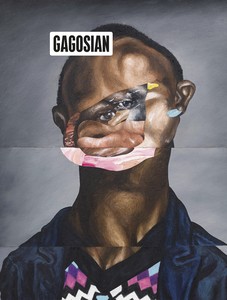
The Fall 2019 issue of Gagosian Quarterly is now available, featuring a detail from Sinking (2019) by Nathaniel Mary Quinn on its cover.
In conjunction with his exhibition VERY at Louisiana Museum of Modern Art in Humlebæk, Denmark, Ed Ruscha sat down with Kasper Bech Dyg to discuss his work.
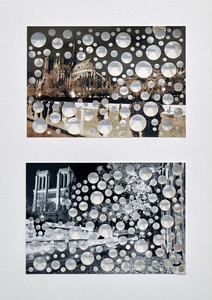
An exhibition at Gagosian, Paris, is raising funds to aid in the reconstruction of the Cathédrale Notre-Dame de Paris following the devastating fire of April 2019. Gagosian directors Serena Cattaneo Adorno and Jean-Olivier Després spoke to Jennifer Knox White about the generous response of artists and others, and what the restoration of this iconic structure means across the world.
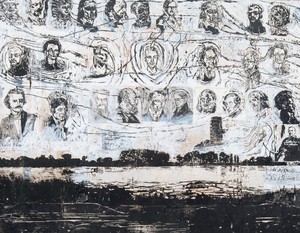
An exhibition at the Broad in Los Angeles prompts James Lawrence to examine how artists give shape and meaning to the passage of time, and how the passage of time shapes our evolving accounts of art.
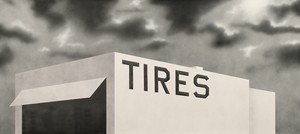
Ed Ruscha sat down with Tom McCarthy and Elizabeth Kornhauser, curator at the Metropolitan Museum of Art, to discuss the nineteenth-century artist Thomas Cole, whose Course of Empire paintings inspired a series of works by Ruscha more than a century later.
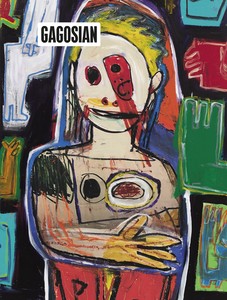
The Winter 2018 issue of Gagosian Quarterly is now available. Our cover this issue comes from High Times, a new body of work by Richard Prince.
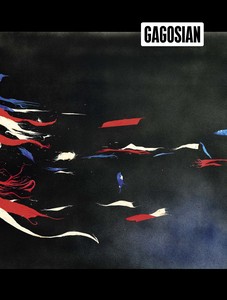
The Spring 2018 Gagosian Quarterly with a cover by Ed Ruscha is now available for order.
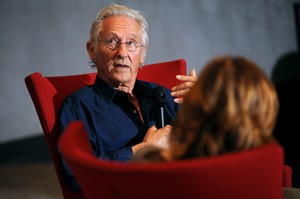
Ed Ruscha sat down with JoAnne Northrup of the Nevada Museum of Art to discuss the exhibition Unsettled, which the two co-curated.
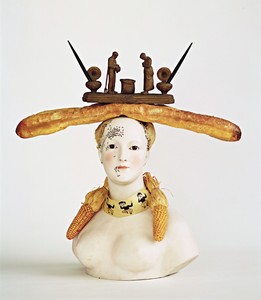
Mary Ann Caws and Charles Stuckey discuss the presence of food and the dining table in the history of modern art.
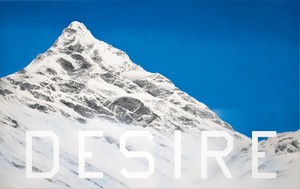
Diana Widmaier Picasso, curator of the exhibition Desire, reflects on the history of eroticism in art.
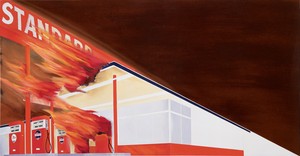
Ed Ruscha’s Burning Gas Station (1965–66) was a game changer. Text by Larry Gagosian.
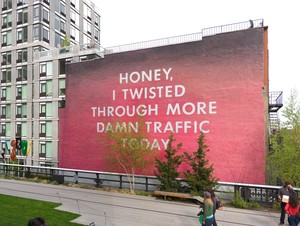
The High Line Art Program’s Cecilia Alemani discusses Ed Ruscha’s mural.